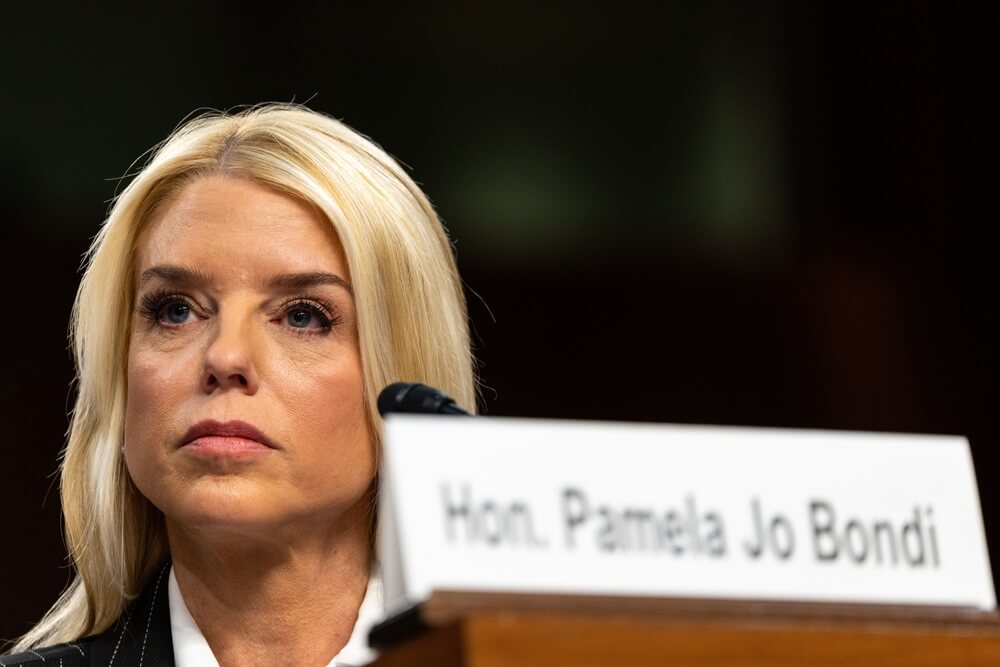The American Bar Association (ABA) filed a complaint against President Donald Trump's administration to stop what it believes is the government's coordinated intimidation campaign against large law firms.
According to a Reuters report, the complaint was filed with a court in Washington and is directed against executive orders that the ABA believes violate the Constitution because they penalise lawyers and law firms for their choice of clients and the legal positions they represent.
The first of the contested executive orders provides for the revocation of the security clearances of lawyers whose law firms conduct proceedings or represent interests that run counter to the White House.
Another executive order mandates the termination of federal contracts with law firms that refuse to stop representing certain clients. According to the lawsuit, this "law firm intimidation policy" has seriously damaged the relationship between the government and law firms and created an atmosphere of mutual distrust.
Unconstitutional executive orders
The complaint states that four firms have already obtained injunctions against implementing the most controversial executive orders. Among them is Susman Godfrey, which now represents the ABA. The complaint points out that lawyers have been forced to abandon important pro bono cases for fear of losing government contracts or security clearances.
The executive orders violate the First Amendment – the American Bar Association
The ABA argues that executive orders violate the First Amendment because they attempt to restrict freedom of expression and representation in court.
It also believes that the attack on the legal profession is an attack on the Sixth Amendment, which guarantees the right to choose a legal representative. The complaint states that the president's actions are arbitrary and exceed the limits of executive power.
Several federal judges have already pointed out the unconstitutionality of similar provisions. Courts in Washington have temporarily blocked the portion of the order prohibiting access to the buildings and revoking the permits.
All of this makes it clear that the courts believe there are reasonable grounds to suspect that the executive orders may seriously violate the separation of powers.
A blizzard-like chill in the legal community
The executive orders caused a "blizzard-like chill" in the legal community. Many law firms reduced their involvement in pro bono cases and suspended public interest litigation for fear of losing federal contracts or security clearances.
ABA points out that its role in coordinating such programmes is crucial, as it gathers about 400,000 lawyers in the US. The fact that the ABA is leading this dispute with such a large membership and with the support of the prestigious Susman Godfrey law firm shows how serious it is.
Restricting the right to representation threatens the control mechanisms and balances of power
The lawsuit extends beyond safeguarding a select few law firms, as it fundamentally questions the president's jurisdiction over the independence of the legal profession. Restricting the right to representation threatens the control mechanisms and balances of power.
If the court upholds the unconstitutionality of the executive orders, it will send a clear message to future administrations that the Constitution is the limit for all executive action.
Although four law firms have already obtained favourable court rulings that temporarily halted the implementation of controversial orders, a decision by the Supreme Court is still pending.
If the Supreme Court upholds the decisions of the lower courts, the dispute is likely to be settled in favour of the ABA. Otherwise, strengthening the president's powers could come at the expense of congressional and judicial oversight.
To date, Congress has not passed a law expressly prohibiting the revocation of lawyers' security clearances. If Congress passes such a law, it would serve as a legal confirmation of the judiciary's independence.
Long-term implications
International observers closely monitor the dispute, as the measures to revoke licences bear a resemblance to practices typically associated with authoritarian regimes. If the executive orders are declared unconstitutional, this will be an example of the defence of fundamental freedoms and send a clear message about the limits of executive powers.
At the international level, the legal teams of the ruling elites in developing countries are watching this case closely. They will use the American example to either defend their own rule of law practices or criticise the hypocrisy of the US in applying the same standards they consider universal.
 If the unconstitutionality of the executive orders is confirmed, the White House and the Department of Justice will withdraw the most controversial measures - Pam Bondi
If the unconstitutionality of the executive orders is confirmed, the White House and the Department of Justice will withdraw the most controversial measures - Pam Bondi
This dispute, therefore, will have long-term implications for diplomatic relations among global multilateral organisations.
It is expected that if the unconstitutionality of the executive orders is confirmed, the White House and the Department of Justice will withdraw the most controversial measures and review their internal risk assessment procedures for granting security clearances.
This decision will make clear that the executive branch cannot unilaterally suspend the rights of lawyers and that any such policy requires legislative or judicial approval.
If, on the other hand, the court rejects the appeal and allows the executive orders to remain in effect, further intensification of political pressure on the legal profession and a broader range of administrative tools against critics can be expected.
In this scenario, Congress would come under additional pressure to reassert its own authority by passing precise legislation to protect access to security clearances.
In the long term, the outcome of this dispute could blur the line between the legitimate exercise of executive power and the unlimited power of the president, thereby shaping the future balance of power and the independence of the judiciary.